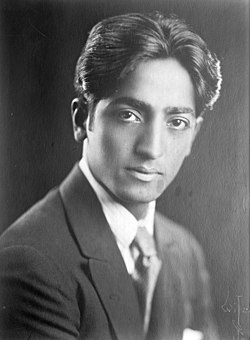Jiddu Krishnamurti Quote
When the mind is empty, silent, when it is in a state of complete negation - which is not blankness, nor the opposite of being positive, but a totally different state in which all thought has ceased - only then is it possible for that which is unnameable to come into being.
Jiddu Krishnamurti
When the mind is empty, silent, when it is in a state of complete negation - which is not blankness, nor the opposite of being positive, but a totally different state in which all thought has ceased - only then is it possible for that which is unnameable to come into being.
Related Quotes
Certainly we can say that the pace of modern life, increased and supported by our technology in general and our personal electronics in particular, has resulted in a short attention span and an addict...
Arthur Rosenfeld
Tags:
being, complicated, critical thinking, daoism, emotion, feeling, hectic, life, meditation, modern life
It's okay to disagree with the thoughts or opinions expressed by other people. That doesn't give you the right to deny any sense they might make. Nor does it give you a right to accuse someone of poor...
Ashly Lorenzana
Tags:
communication, disagreement, expression, expressions, humanity, humble, humility, ideas, judgement, judgmental
About Jiddu Krishnamurti
Jiddu Krishnamurti ( JID-oo KRISH-nə-MOOR-tee; 11 May 1895 – 17 February 1986) was an Indian philosopher, speaker, writer, and spiritual figure. Adopted by members of the Theosophical tradition as a child, he was raised to fill the advanced role of World Teacher, but in adulthood he rejected this mantle and distanced himself from the related religious movement. He spent the rest of his life speaking to groups and individuals around the world; many of these talks have been published. He also wrote many books, among them The First and Last Freedom (1954) and Commentaries on Living (1956–60). His last public talk was in January 1986, a month before his death at his home in Ojai, California.
Krishnamurti asserted that "truth is a pathless land" and advised against following any doctrine, discipline, teacher, guru, or authority, including himself. He emphasized choiceless awareness, psychological inquiry, and freedom from religious, spiritual, and cultural conditioning. His supporters — working through non-profit foundations in India, Britain, and the United States — oversee several independent schools based on his views on education, and continue to distribute his thousands of talks, group and individual discussions, and writings in a variety of media formats and languages.
Krishnamurti asserted that "truth is a pathless land" and advised against following any doctrine, discipline, teacher, guru, or authority, including himself. He emphasized choiceless awareness, psychological inquiry, and freedom from religious, spiritual, and cultural conditioning. His supporters — working through non-profit foundations in India, Britain, and the United States — oversee several independent schools based on his views on education, and continue to distribute his thousands of talks, group and individual discussions, and writings in a variety of media formats and languages.
